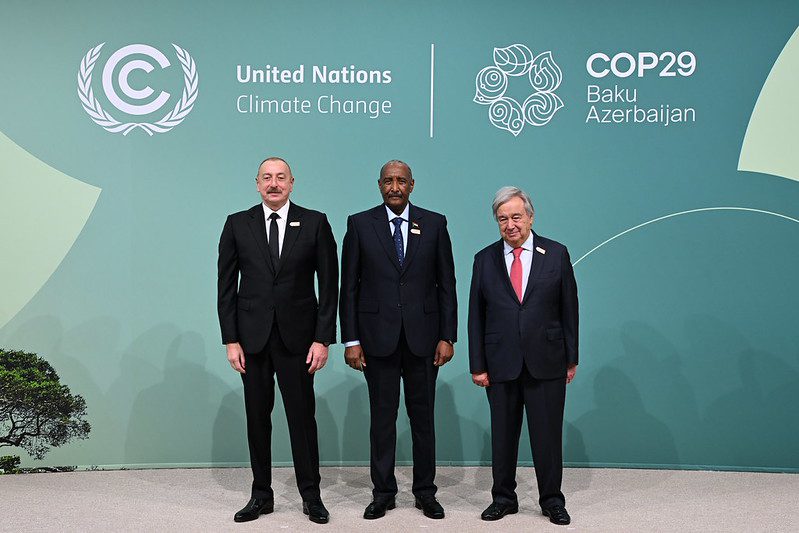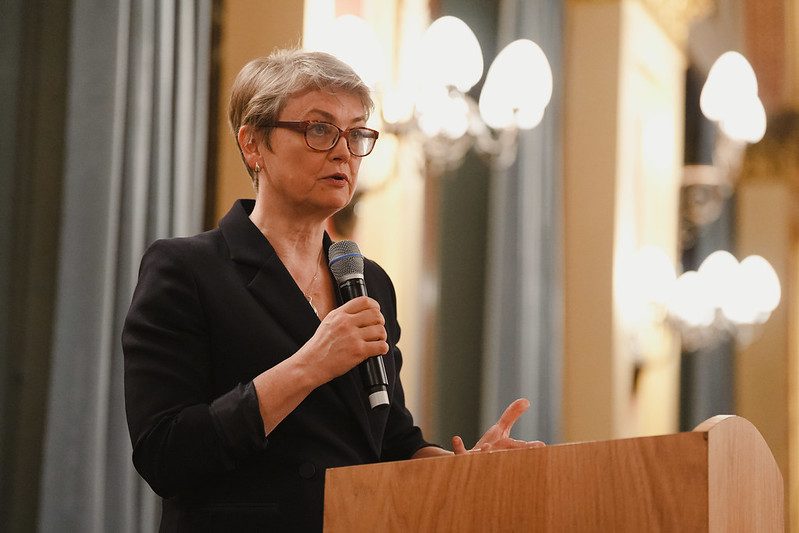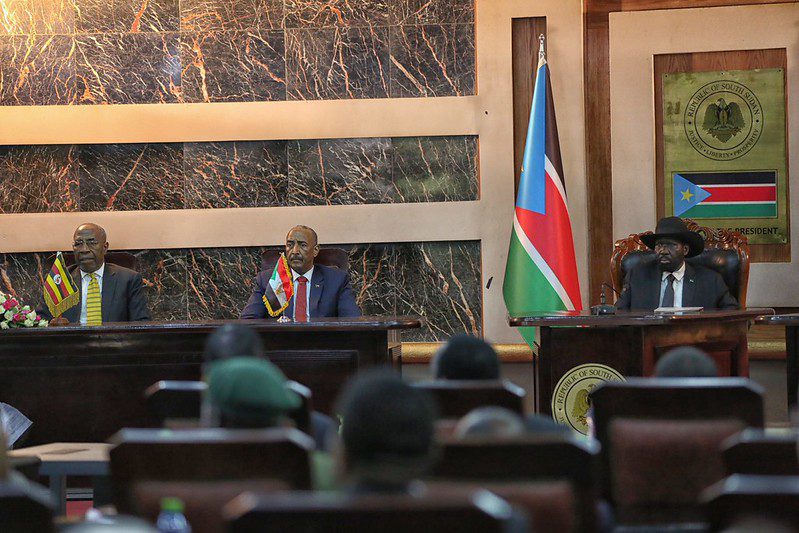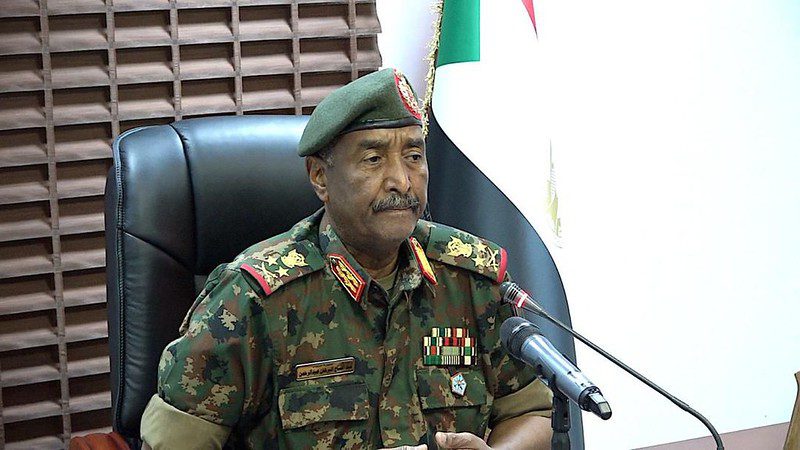Ideological conflict has devastated Sudan for over two years, and yet it continues to escalate between the Sudanese Armed Forces (SAF) and the paramilitary Rapid Support Forces (RSF), despite arguably weak attempts by the United States to reduce tensions.
What began in April 2023 as a power struggle between military factions has since evolved into a full-scale civil war, displacing millions and leaving more than 150,000 people dead across the country. The United Nations has described the situation as the world’s largest humanitarian crisis. Yet, while attention has turned toward Palestine, the people of Sudan have been quietly abandoned, and the residents of El Fasher are now paying the price for international neglect.
The RSF was formed in 2013, emerging from the Janjaweed militia that waged a brutal campaign in Darfur under former dictator Omar al-Bashir, one that resulted in accusations of genocide and ethnic cleansing against Darfur’s non-Arab population. Following al-Bashir’s fall in 2019, RSF commander Mohamed Hamdan Dagalo, known as “Hemedti,” became deputy to General Abdel Fattah al-Burhan, head of the Sudanese army.
Where does the conflict in Sudan stem from ?
In 2022, a political agreement was signed to integrate the RSF into the national army. However, the deal soon collapsed amid disputes over command structure and authority. Within months, the uneasy partnership between the two leaders imploded, and Sudan descended into chaos.
Since then, both sides have fought for control of major cities and strategic regions, with the RSF determined to consolidate dominance across western Sudan. In early June, RSF forces captured territory along the borders with Libya and Egypt, strengthening their hold over Darfur. By late October, El Fasher, the capital of North Darfur, had fallen after months under siege.

Image: President of the Republic of Azerbaijan, Prime Minister of Sudan Abdel Fattah al-Burhan, António Guterres, United Nations Secretary-General during the UN Climate Change Conference COP29 – COP29
Once home to more than a million residents, El Fasher was one of the army’s last strongholds in the region. Its fall now gives the RSF control of nearly all of Darfur and parts of neighbouring Kordofan, a devastating result for the people of Darfur, considering the brutality the RSF is known to inflict upon those who do not comply with their ethnic vision for Sudan. These atrocities are reminiscent of those in Russia in the early 20th century, despite being under different cultural contexts, considering early Soviet policies of Russification. Further, the RSF attempts to project a similar façade as the Bolsheviks did, regarding the overthrow of a dictator, seemingly justifying their inhumanity with national “repurification”.
Reports from the city have been horrifically harrowing. Verified footage reveals armed men wearing RSF insignia engaging in violence around the city, while the United Nations has confirmed receiving credible reports of paramilitary executions. Also, the World Health Organisation has reported that the Saudi Maternity Hospital in El Fasher was attacked for the fourth time this month, killing over 460 patients and several health workers, with others abducted, presumably to be either executed or held as hostages. This can no longer be considered merely a political struggle, when vulnerable lives have been taken simply for ideological means.
The atrocities mirror earlier RSF offensives, notably the 2023 massacre in Geneina, West Darfur, where as many as 15,000 civilians, most of whom were from non-Arab groups, were killed as part of their ethnic cleansing project. Famine has now been declared in parts of Darfur, particularly the Zamzam displacement camp south of El Fasher, where an estimated half a million people once sought refuge.
The international response to atrocities in Sudan
As usual, international condemnation has followed, though it has brought little consequence, being both insubstantial and overdue. The UN Security Council denounced the assault on El Fasher, warning of a “heightened risk of large-scale atrocities, including ethnically motivated violence.” The British government has acknowledged that UK-made military equipment was discovered in Sudan, while U.S. lawmakers have called for the RSF to be designated a foreign terrorist organisation, however whether this will have any real impact is debatable. Simply labelling them as terrorists will have no impact; the US, if it truly wanted to impact the conflict, has the power as a supranational power to offer aid to the Sudanese government or attacked regions, and yet chooses not to. Furthermore, Trump’s foreign policy is rhetorical, rather than actionable, as has been seen with Ukraine and Palestine alike.

Image: Foreign Secretary Yvette Cooper attends BHM Reception – Ben Dance / FCDO
Back in the UK, however, a worrying implication is why British-manufactured weapons have been used by the RSF to commit these atrocities. On Tuesday, reports emerged that British-manufactured small-arms target systems and engines for armoured personnel carriers were recovered from combat zones in Sudan, likely supplied to the RSF by the UAE, their largest military patron. In the wake of this, the UK must consider the ethics of arms trade with morally concerning nations such as the UAE, and prioritise principle over profit. Further, this potentially breaks international humanitarian law, as the UK has an obligation not to authorise export arms exports to internally divisive nations. Foreign Secretary Yvette Cooper, despite releasing a statement on the conflict overall, has yet to comment on the UK’s arms contribution, in spite of calls to do so.
Famine spreads as Peace Talks Stall
Still, decisive intervention remains absent. The RSF now controls most of western Sudan, while the SAF clings to the northeast. Analysts have warned that the country could once again fracture, recalling the 2011 secession of South Sudan, which stripped the nation of its oil wealth. A second partition would ensure political and humanitarian collapse.

Image: President of South Sudan Salva Kiir Mayardit and President of National Sovereignty Council Abdel-Fattah Al-Burhan – UNMISS
As famine spreads and aid routes remain blocked, millions are trapped between the warring factions. Peace talks have stalled, and international efforts have proved largely symbolic. What began as a dispute over military integration has become the systematic unravelling of a state. The world’s silence speaks volumes. Sudan’s suffering has become a casualty of geopolitical selectivity, a reminder that international empathy is often measured not by the scale of tragedy, but by strategic convenience. While Western leaders continue to issue statements of “deep concern,” their reluctance to act betrays the moral fatigue of a world accustomed to human catastrophe.
As El Fasher burns and millions starve, Sudan’s crisis now stands as an indictment not only of its leaders, but also of the global order that allows such wars to fade quietly into the margins of public consciousness.
Featured Image via African Union Peace and Security Council





